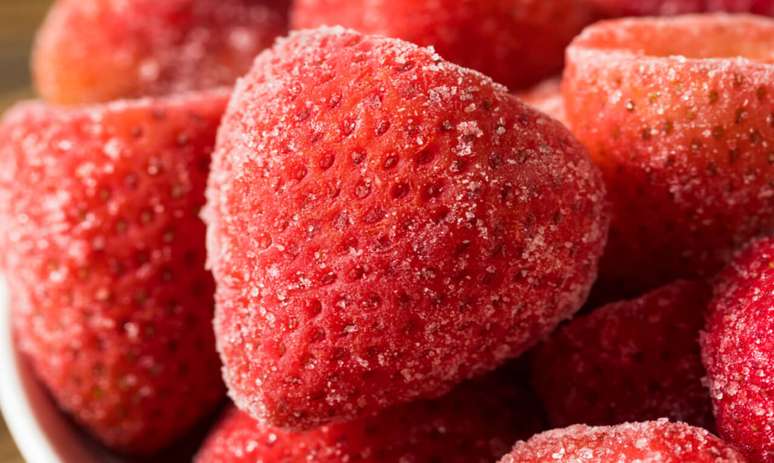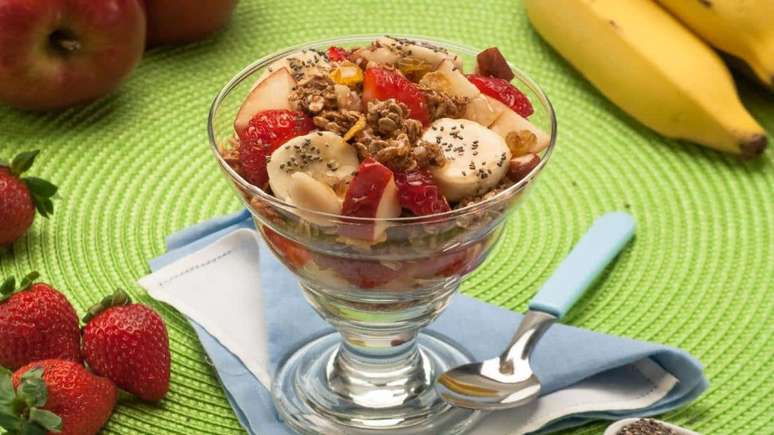Frozen fruit may be more convenient and refreshing in everyday life, but does the practice pay off nutritionally?
Frozen fruit is a good option to cool down on hot days and allows you to maintain a healthy diet even during a busy routine. Furthermore, it is also a way to extend the shelf life of these foods, guaranteeing greater savings. But is it worth freezing them from a nutritional point of view?
According to Dr. Lorena Balestra, the answer to this question is not so simple. This is because nutrient retention after freezing depends on factors such as how long it takes to freeze. “It is true that, in general, harvesting at the peak of ripeness and freezing quickly can preserve the nutritional benefits, that is, we should freeze it as soon as we buy the food,” explains Lorena.
Benefits of frozen fruit
According to the doctor, an advantage is the fact that they last several months, which can be an economical and practical option for those who always want to have fruit available, even out of season.
Plus, by purchasing already frozen and prepared fruit, such as strawberry slices ready for a delicious smoothie, you save time preparing meals on a busy day. Fresh foods are also rich in nutrients, but they must be consumed more quickly if we want to take advantage of the vitamins they contain.
The important thing is to understand that, in general, the health benefits of consuming fresh and frozen fruit are very similar. Each option has its own particularities and, depending on the food and how it will be used, both can be beneficial for nutrition.
The best way to freeze your fruit
Dr. Lorena underlines that it is important to take care of fruit hygiene to avoid contamination by harmful germs, such as salmonella and Escherichia coli. Therefore, washing fruit well before consumption, especially fresh fruit, is a simple measure that can help reduce the risk of food-borne illnesses.
It is important to follow some guidelines to ensure the efficiency of the process. Check:
- Choose fresh, ripe fruit: Fruits at their ideal ripeness point have the highest nutrient content.
- Wash well: Before freezing it is essential to wash the fruit to remove pesticide residues and dirt.
- Remove seeds and pits: Some fruits have seeds and stones which can compromise their consistency after freezing.
- Cut into pieces: Large fruits may freeze unevenly, so it is recommended to cut them into smaller, even pieces.
- Use suitable containers: Store fruit in bags or containers suitable for freezing, eliminating as much air as possible.
- Avoid the formation of ice crystals: The faster the freezing process, the less ice crystals form which can compromise nutritional quality.
- Consume within a reasonable time: While freezing helps preserve nutrients, some can still spoil over time. Try to consume frozen fruit within a reasonable time frame to get the best nutritional value.
Freezing fruit can be a great option for preserving their quality and prolonging their availability throughout the year. However, it is essential to understand that the choice between fresh and frozen fruit will depend on the type of fruit and the way in which it will be consumed, highlights Lorena.
Therefore, always consult a qualified healthcare professional for safe, personalized guidance on the best nutritional approach for your individual needs.
Source: Terra
Ben Stock is a lifestyle journalist and author at Gossipify. He writes about topics such as health, wellness, travel, food and home decor. He provides practical advice and inspiration to improve well-being, keeps readers up to date with latest lifestyle news and trends, known for his engaging writing style, in-depth analysis and unique perspectives.









